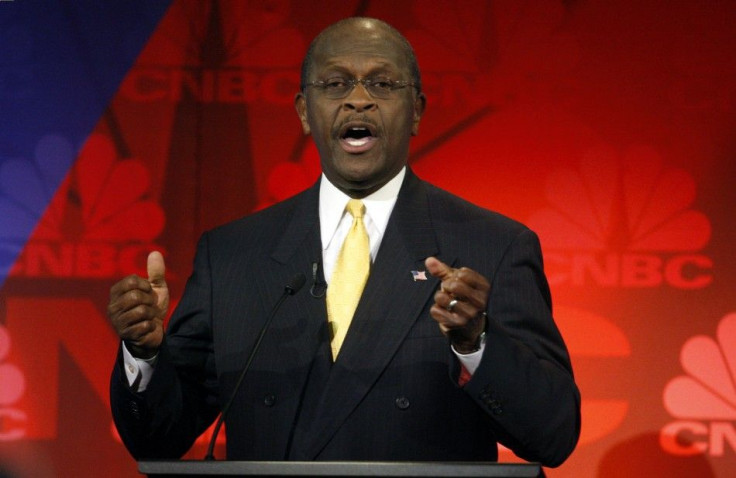Herman Cain Lie Detector Test Is Unreliable: Two Studies

Last week, private investigator T.J. Ward announced that a layered voice analysis test proved Herman Cain's innocence of the sexual harassment charges against him. But according to two studies, the technology is not a reliable lie detector.
Layered voice analysis, or LVA, is one of two technologies that purport to detect lies by analyzing a subject's voice. According to Ward -- who has previously worked with Cain's lawyer, Lin Wood -- it shows that Cain was telling the truth when he denied the harassment allegations and that one of his accusers, Sharon Bialek, was lying when she made the allegations.
A similar technology, computer voice stress analysis, or CVSA, was used by the U.S. government to interrogate suspected terrorists until it was shown to be no more reliable than a coin flip in detecting lies. John Palmatier, a psychologist who evaluated the software for the Michigan State Police Department, told ABC News that it was nothing more than a prop.
Ward told the International Business Times last week that LVA was significantly more effective than CVSA, because while CVSA only looked at stress levels in subjects' voices, LVA looked at involuntary changes of voice with 2,800 different algorithms. Nemesysco, the Israeli company behind the LVA technology, claims it is 95 percent accurate.
But a 2006 University of Florida study found that LVA was actually no more reliable than CVSA in identifying true or false statements, and a 2007 study by the National Criminal Justice Reference Service concurred.
Neither device showed significant sensitivity to the presence of stress or deception in the speech samples tested, the study concluded. The true positive and false positive rates were parallel to a great extent.
Cain said at a press conference last week that he would be willing to take a polygraph test to prove his innocence, but not unless I have a good reason to do that. Polygraph tests differ from voice analysis tests in that they measure physiological reactions like blood pressure, pulse and respiration, but many experts question their reliability as well.
© Copyright IBTimes 2024. All rights reserved.











